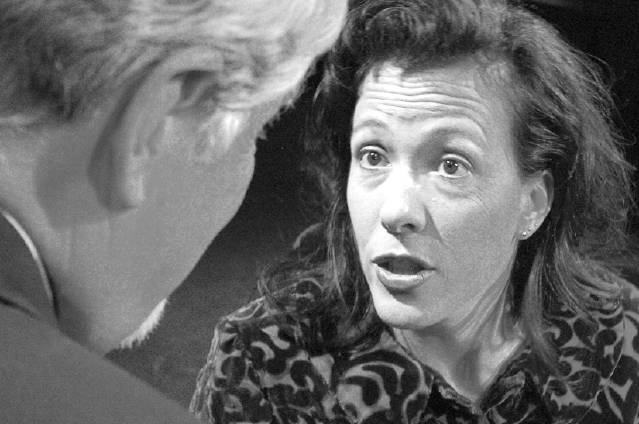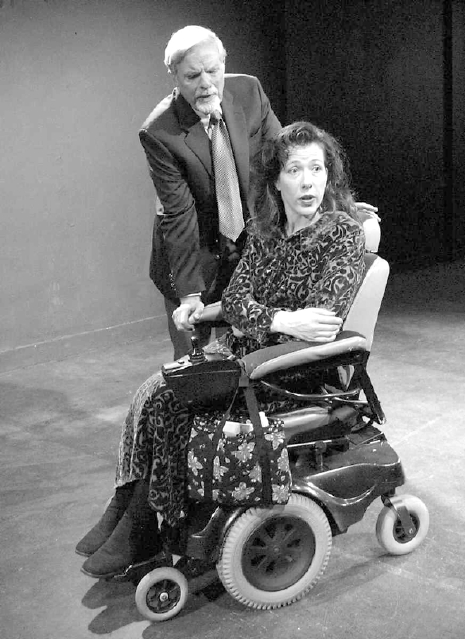Hard work and perseverance are crucial to success in most endeavors, but it’s often the case that even more is required. Sometimes it’s blind luck. Sometimes it’s an innate gift.From the age of 6 on, Stephanie Abrahams’ life revolved entirely around music. Her quest to master the violin quickly became all-encompassing. It colored everything she did and every relationship she cultivated. She worked hard, but she also had a rare affinity for performance that ultimately brought her recognition far and wide.Then she lost everything.That’s the set-up of Duet for One , a play by Tom Kempinski that’s now running at Sol Arts. The production, staged beautifully by the ever-talented Paul Ford, is something any adult should relate to. Few of us are wheel-chair bound like Stephanie. Few of us are wrestling with multiple sclerosis. Even fewer once enjoyed international success as concert violinists.Yet the potential for a similar kind of loss is, unfortunately, a possibility for everyone. This engrossing play is a searing reminder of the fragility of our bodies and the psychological dangers we all would face in the event of premature physical deterioration.In Stephanie’s case, her composer husband insisted that she get some help, so he sent her to Dr. Feldmann, a therapist who also loves the violin and is a fan of the ailing woman’s music. You might think this would be a match made in heaven. It isn’t. At first Stephanie insists that everything is just fine and dandy. She’s making adjustments to her new life without the violin. Maybe she’ll become her husband’s secretary. Maybe she’ll take on a few music students.She’s kidding herself, though, and Feldmann—not to mention the audience—recognizes this immediately. When he asks her about her sex life, her music, her thoughts for the future, she lashes back at him.From the beginning, you can tell this production is in good hands. Ford is one of the best directors in town, and he does some polished work here. The doctor is performed by veteran actor Ray Orley, who does an exceptional job of jabbing at the poor delusional woman’s psychic wounds. The real prize, though, goes to Kristen Loree, who teases out a lot of subtleties in Stephanie’s troubled persona. I especially enjoyed her inspired work maneuvering her electric wheelchair around the stage. Loree conveys angst with words and mannerisms, but her torment is most clearly conveyed through the jerky movements of her chair. In particular, the hostility she feels toward Feldmann really hits home when she charges him, threatening to break his shins, or circles him, like a shark sniffing for a trace of blood.A musician herself, Loree seems to have really connected with this role.Stephanie lost her music, but all of us would lose something crucial in her situation. This production of Kempinski’s play forces the viewer to question what our reactions to that loss might be, and whether we could find the endurance necessary to survive in very trying circumstances.
Performance Review
A benefit performance for the National Multiple Sclerosis Society will be held on Sunday, Feb. 4, at 2 p.m.
Duet for One , a play by Tom Kempinski, runs through Feb. 18 at Sol Arts (712 Central SE). $10 general, $8 students/seniors. 244-0049, www.solarts.org.




